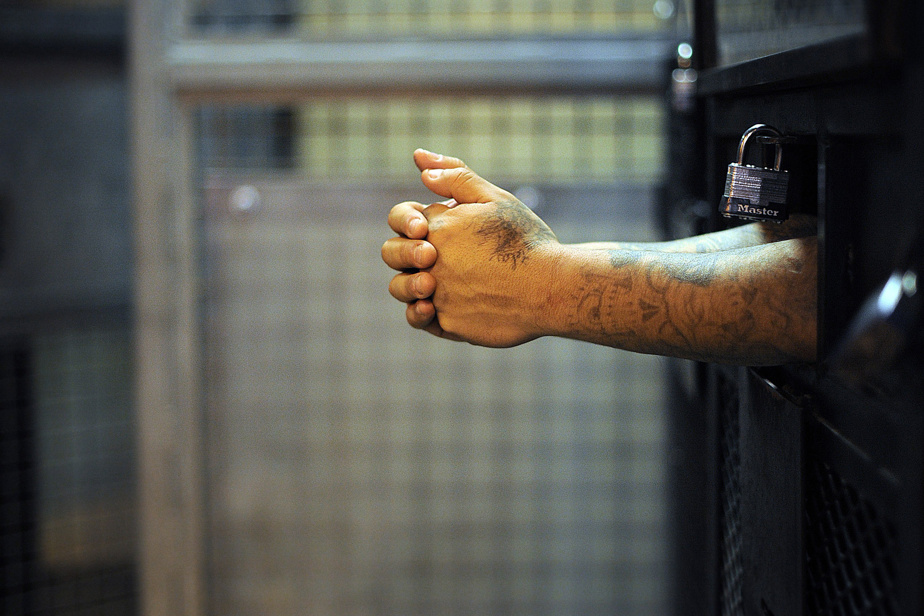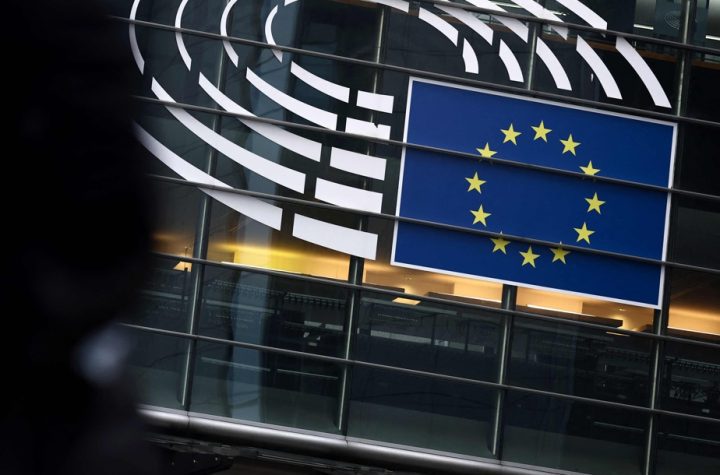
Hundreds of thousands of American inmates will have to work in “degraded conditions” that would cause scandal in any other environment, the new report authors condemn the “exploitation” of the United States’ prison population.
Posted at 7:00 p.m.
A comprehensive study by the American Civil Liberties Union (ACLU) with researchers from the University of Chicago found that the federal government and several states were using constitutional exemptions to exploit this “captive labor force.”
13E An amendment introduced in 1865 to abolish slavery and involuntary slavery provided an exemption for the “punishment” of criminals, thereby depriving them of effective legal protection.
“Most people are not particularly surprised by the idea that prisoners are being forced to work, but they do not understand the circumstances associated with it,” said Mariana Olaizola, co-author of the study.
Low salary
Inmates working in federal or state prisons typically earn very little, and their hourly wage is rarely more than $ 1 – even for the dangerous jobs that California inmates mobilize to fight wildfires.
Based on access to information requests and a series of lengthy interviews, the authors calculated that the average hourly wage was 13 cents per hour.
They identified seven states that did not pay prisoners forcing them to work.
Those who make less money also have to deal with the fact that prisons deduct up to 80% of their revenue to cover a variety of expenses.
Nearly 70% of those who worked in detention said they did not earn enough money to pay for basic items such as hygiene products, medicines or warm clothes imposed on them in prisons.
Families facing a loss of income due to the imprisonment of an individual will have to intervene to support them financially, often by incurring debts, the report said.
Hypocrisy
While earning small sums, inmates produce $ 2 billion worth of goods and services a year and provide management services with an estimated $ 9 billion to the organizations that oversee them.
About 80% of working inmates are assigned to maintenance. Another 10% is allocated to public works such as maintenance of roads or parks. A small portion is employed by private companies that pay for prisons.
“The economic benefits to governments are enormous,” she said.Me Olaizola.
The co-author of the study called the United States’ condemnation of the use of forced labor abroad while profiting from abusive practices in the American prison system “hypocritical.”
Nearly two-thirds of the inmates surveyed indicated that they had worked in prison, representing 800,000 people nationwide.
Of those who worked, not less than 75% indicated that they were at risk of being granted in the event of a rejection. Some penalties have been reported, such as solitary confinement and loss of family visitation rights.
Jobs at risk
It also stated that prisoners were forced into high-risk jobs without receiving training or adequate equipment.
The study authors noted that during the Kovid-19 pandemic many of them encountered such a scenario by being given tasks where they were most likely to be infected.
Prisoners were ordered to refrain from using hand sanitizers, masks, medical suits and face shields for their own protection.
Summary from a study by the American Civil Liberties Union
Often, work programs are justified by allowing inmates to develop skills that facilitate their social reunification.
“But the majority provide management activities that do not provide the specific skills that prisoners want to acquire,” Ms.Me Olaizola.
The authors of the report state that prisoners work on a voluntary basis and need to be protected from intimidation if they refuse to do so.
They demand that the Constitution be amended and that all American workers receive equal legal protections, without protection from government agencies that treat prisoners as “jailers and superiors.”









